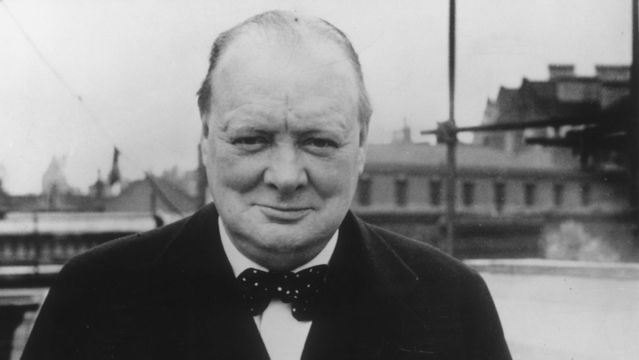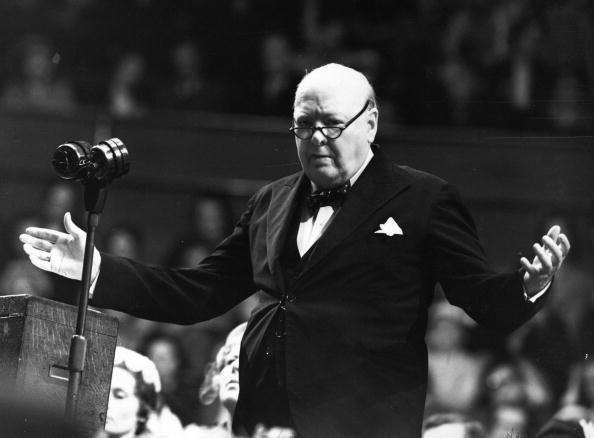
British Prime Minister Winston Churchill.Getty
We know Winston Churchill as a hard-nosed, inspirational Prime Minister who led Britain through one of its toughest periods. How did that come to be?
By the time Winston Churchill became prime minister in 1940, he had already enjoyed a full career in Parliament and in the Cabinet, including turns in office as the first lord of the Admiralty, home secretary, president of the Board of Trade and chancellor of the Exchequer. Moreover, he was old enough to retire with honors.
On a quest for glory
From the beginning, Churchill wanted glory.
He was irascible and confident, brusque and impatient. His consumption of cigars and brandy alone would probably keep him out of polite society today. After serving in a variety of ministerial capacities from World War I through the 1920s, Churchill spent a good part of the ’30s in enforced political retirement at his Kent home, Chartwell.
Read more
He called those his “wilderness years.” Churchill became a needling thorn in the side of successive weak Governments in his call for rearmament in the face of rising Nazi militarism.
When the war was made inevitable by Germany’s invasion of Poland in 1939, it was not long before the conciliatory Government of Neville Chamberlain collapsed. It became a question of national survival more than party politics to find the right wartime prime minister.
Churchill had 30 years of experience in Parliament and Whitehall, and he had been one of the few public voices who had warned of what was to come in Europe. Beyond that, Churchill wanted the job.
After King George VI summoned him to the palace and asked him to form a wartime government, Churchill wrote: “I felt as if I were walking with destiny, and that all my past life had been but a preparation for this hour and this trial.”
Churchill in charge
The new prime minister weighed into the job with the kind of focus that comes with that confidence in destiny. Assembling a nonparty wartime cabinet, Churchill directed every avenue of military preparation and home-front operations. He was a hands-on military strategist and a tireless administrator. Britain had to be kept armed, fueled, fed and funded as it stood alone against the Nazi Axis on the Atlantic wall of Europe. For all Winston Churchill actually did to achieve ultimate Allied victory in World War II, however, it is for unexcelled cheerleading that he is actually most remembered.
It is sadly impossible for us to imagine today the emotional, mental and physical strain that the British people lived under during the long months of the Battle of Britain and the hard years before America entered the war.
They suffered the casualties of a 9/11 event every night for months as Luftwaffe pilots bombed cities from the Clyde to Cornwall. British lads in their teens and 20s by the hundreds died in the Royal Air Force defense of the island. The British people lived with rationing of all kinds of goods, constant fear, life-consuming effort, and pervasive grief. And Churchill led them to victory.
Churchill becomes an icon

Winston Churchill
As Churchill’s voice rallied the spirit of the British people, his picture on posters served as an iconic embodiment of John Bull’s tenacity.
In bully pulpits from the House of Commons to the BBC, Churchill rallied the spirits and the efforts of the nation. With bombs raining down nightly on London, the prime minister inspired the people on to their own heroic and historic efforts—on to “their finest hour.” Churchill himself became the personification of Britain’s determination to win glory for themselves. Portly, proud and petulant, Churchill was an embodiment of John Bull.
Winston Churchill’s dramatic and heroic wartime leadership takes center stage in his life story. When he was replaced as prime minister by a war-weary nation, however, he continued to lead the Conservative Party for another 10 years, well into his 80s; he returned to become a Cold War prime minister from 1951-55. He won the Nobel Prize for writing the six-volume The Second World War and penned his four-volume masterpiece A History of the English Speaking People.
While the great man had an ego not to be denied, Churchill always affirmed that it was the British people, not himself, who brought them through the fires of World War II. As he wrote years later: “It was the nation and the race dwelling all round the globe that had the lion’s heart. I had the luck to be called upon to give the roar.”
* Originally published in May 2018.





Comments